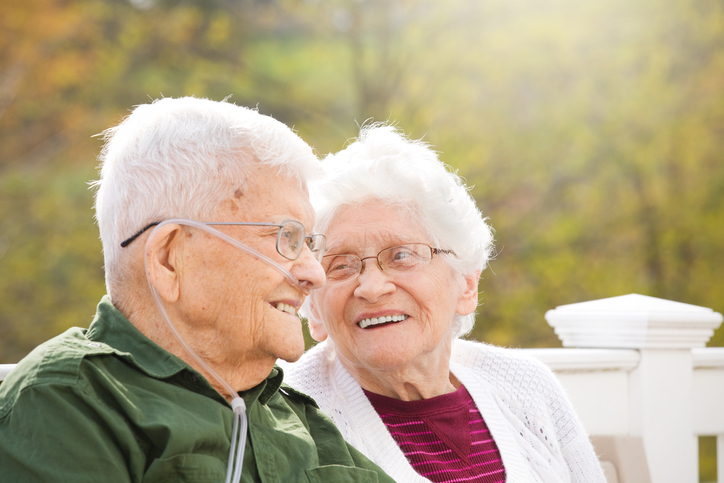
Discover helpful information on the stages of COPD.
As approximately 11 million individuals in America alone presently clinically diagnosed with COPD (chronic obstructive pulmonary disease), we at Grace Home Care fully understand the complexities and complications associated with the airflow restrictions – and as a result, the lifestyle restrictions – that seniors with the disease face each day. It’s very important for us as caregivers, and for family members who are also providing care, to understand what to expect in each stage of this progressive disease, and how to aid those with COPD effectively cope with their condition and live life to their fullest potential.
Our caregivers provide home health in Topeka and surrounding areas, including wide range of specialized in-home care services including helping those with COPD, have broken down the four stages of COPD below for your understanding, along with the guidelines from the Lung Institute on actions you should take to be sure your senior loved one stays as healthy as possible.
Stage 1: Mild COPD
Through this phase, it may not even be apparent that there’s a problem other than encountering some coughing and mucus, along with slight breathing limitations when completing daily activities. Although the symptoms may come across as minor, it’s important for the individual to see the doctor as soon as possible, so that if a COPD diagnosis is confirmed, a treatment plan can be established. The doctor may prescribe medications as well as lifestyle modifications – particularly giving up smoking, following a healthy diet, and exercising. Alternative treatment suggestions, such as acupuncture, chiropractic care, and cellular therapy, may perhaps also be considered.
Stage 2: Moderate COPD
When experiencing moderate COPD, coughing and mucous are increased, while airflow will become more constricted. Lung capacity in this stage has fallen to anywhere between 50 and 79%, and physical activity will leave the individual feeling breathless. Medications will likely need to be adjusted during this stage, and pulmonary rehabilitation could also be suggested by the doctor, helping the senior maximize breathing functioning.
Stage 3: Severe COPD
When a senior reaches the severe stage of COPD, symptoms will have intensified and considerable impairment of lung function is experienced. Fatigue and breathlessness increase, making it daunting for the senior to stay active, and frequent medical appointments may be required. Additional pulmonary screening will help the medical professionals track the advancement of the disease and to consider additional treatment options to enhance quality of life, such as oxygen, inhalers, and bronchodilators.
Stage 4: End-Stage COPD
In the end stage of COPD, lung function has decreased to 30% or less, and oxygen therapy will be needed. Basic activities of daily living become difficult or impossible to accomplish without fatigue and breathlessness. The physician will want to keep a close eye on the senior in this stage, altering the treatment plan to help the person maintain the highest possible quality of life. Activities such as tai chi or yoga might be encouraged to help the person remain as active as possible while remaining comfortable.
One of the preferred ways to help seniors with COPD, and the families who care for them, is by working with a professional home care agency, such as Grace Home Care. Our experts in home health in Topeka is highly skilled and experienced in helping those with COPD by:
- Preparing nutritious meals per any dietary restrictions
- Offering safe, accompanied transportation to medical appointments and procedures
- Helping seniors take part in physician-approved exercise programs
- Keeping a clean home environment
- Providing friendly, caring companionship
- And so much more
Contact us any time at 785.286.CARE to learn more.
